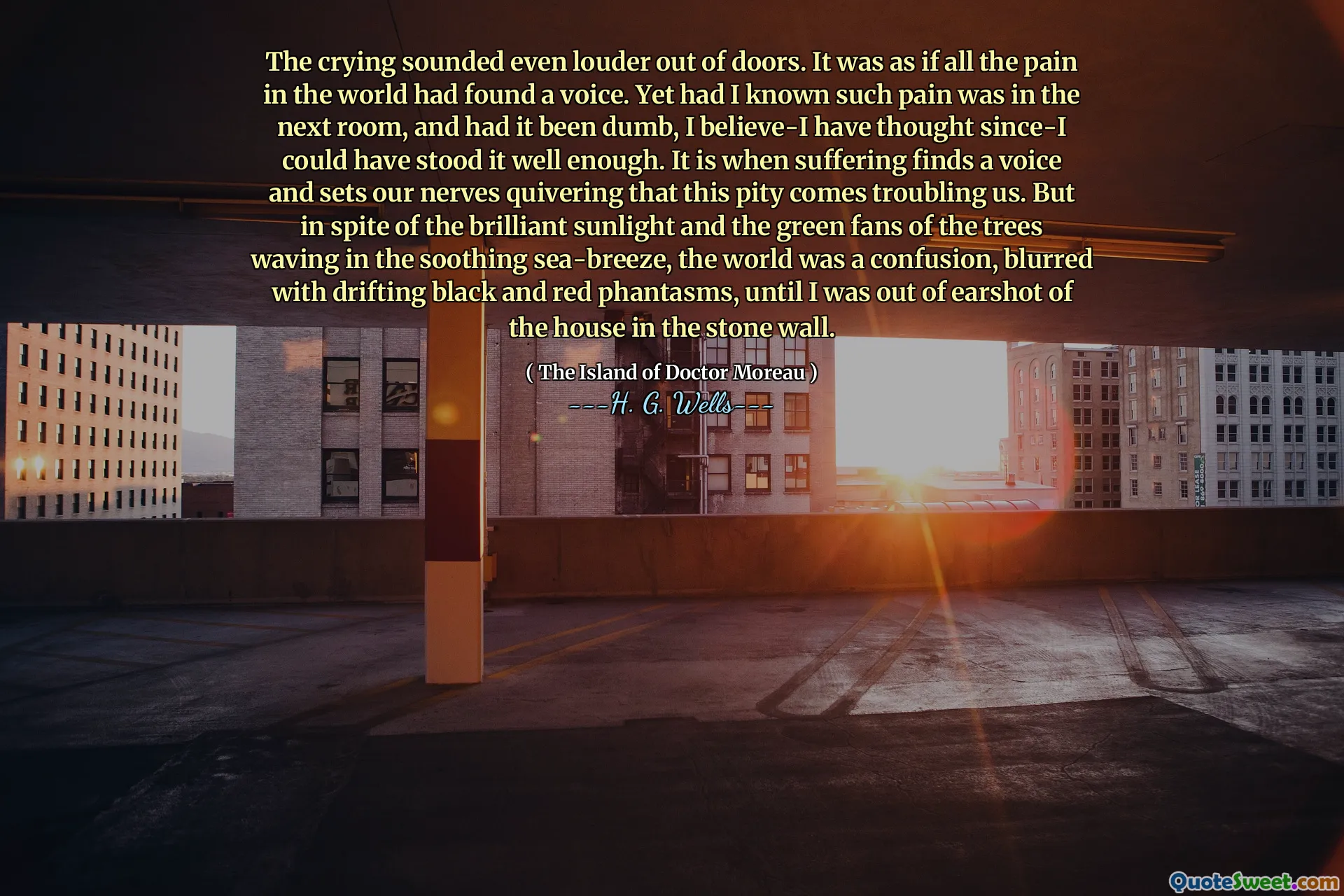
The crying sounded even louder out of doors. It was as if all the pain in the world had found a voice. Yet had I known such pain was in the next room, and had it been dumb, I believe-I have thought since-I could have stood it well enough. It is when suffering finds a voice and sets our nerves quivering that this pity comes troubling us. But in spite of the brilliant sunlight and the green fans of the trees waving in the soothing sea-breeze, the world was a confusion, blurred with drifting black and red phantasms, until I was out of earshot of the house in the stone wall.
The protagonist is struck by the intense sound of crying that resonates outdoors, amplifying every sorrow in the world. The emotional weight of this suffering is exacerbated by its vocal expression. The narrator reflects that if the pain had been silent, it might have been easier to bear, suggesting that witnessing the manifestation of pain can evoke a deeper sense of empathy and distress.
Amidst the beautiful scenery of sunlight and trees, the narrator feels a disarray in his perception, clouded by overwhelming emotions symbolized by dark and red illusions. This turmoil persists until he distances himself from the source of the noise, illustrating the struggle between the serenity of nature and the chaos of human anguish.








